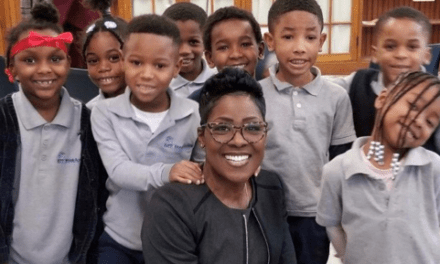
On Sunday night, NBC news anchor Tom Brokaw expressed some troubling words regarding Hispanics in the United States. In explaining how he hears some Republicans are concerned by the growing Latinx population in the United States, he added his own thoughts:
“Also, I hear, when I push a little harder, ‘Well, I don’t know whether I want brown grandbabies.’ I mean, that’s also a part of it. It’s the intermarriage that is going on and the cultures that are conflicting with each other. I also happen to believe that the Hispanics should work harder at assimilation. That’s one of the things I’ve been saying for a long time. You know, they ought not to just be codified in their communities but make sure that all their kids are learning to speak English, and that they feel comfortable in the communities. And that’s going to take outreach on both sides, frankly,” Brokaw said.
As an immigrant myself, I understand these comments about assimilation serve as a dog whistle, neatly veiling ugly ideologies with fancy words permissible for broadcast on news channels. The definition of assimilation, in sociological terms, is the process by which members of a non-dominant group become part of the dominant culture through assuming certain characteristics. This process of assimilation, then, is not a neutral one; it is one charged with power dynamics and it says: in the matter of diversity and inclusion, the minority group—importantly, in this case, a non-white group—must exchange its rich culture for that of the majority group in order to simply survive.
As an immigrant myself, I understand these comments about assimilation serve as a dog whistle, neatly veiling ugly ideologies with fancy words permissible for broadcast on news channels. Share on XBrokaw eventually followed his “Meet the Press” remarks with further insight into what he meant and an apology for offending those he did. He said, “I feel terrible a part of my comments on Hispanics offended some members of that proud culture” and “I never intended to disparage any segment of our rich, diverse society, which defines who we are.”
But in reading through many of the responses to Brokaw’s apology—if we can call it that—I observed that there are many people who share his sentiment, and also his lack of understanding of the Hispanic/Latinx population in the United States. Statistics tell a much more complex story about this community. For one, as the Pew Research Center illuminates, English is the dominant language for 41% of young Latinxs, while 41% of young Latinxs reported being bilingual. We also know most young Latinxs do not consider speaking Spanish a prerequisite to being Latinx. And finally, and perhaps most importantly, we see that “With a median age of 28, Latinxs are also the nation’s youngest major racial or ethnic group.” Thus, moving forward, especially as this group continues to grow, we should do our due diligence in learning about cultural differences rather than relying on stereotypes or assumptions.
As we embark on this new political chapter amid the 2020 presidential election, I encourage us all to use this as an opportunity to learn and reflect. Let us learn about the facts, about each other, and about ourselves. Let us reflect on what we value and how our worldview shapes these priorities. Let us ask ourselves: What does it mean to be American? Who do we bestow with this label and why? How do we expect someone to behave in order for us to extend them basic respect?
Let us ask ourselves: What does it mean to be American? Who do we bestow with this label and why? How do we expect someone to behave in order for us to extend them basic respect? Share on XThe past several years in this sociopolitical climate have been divisive and difficult; let us learn from them by being intentional in broadening our understanding of ourselves and others, especially those who are different from us.


















